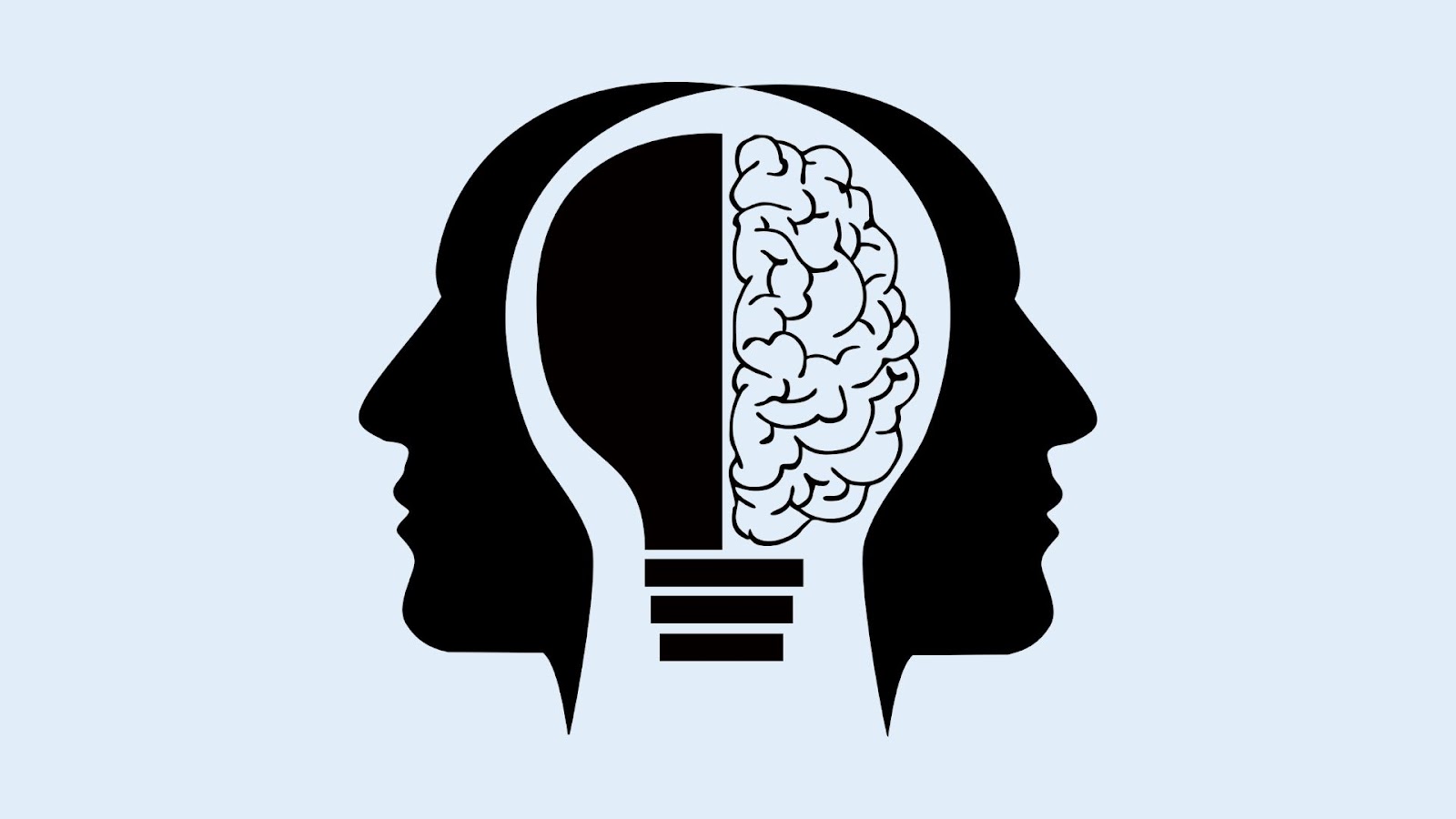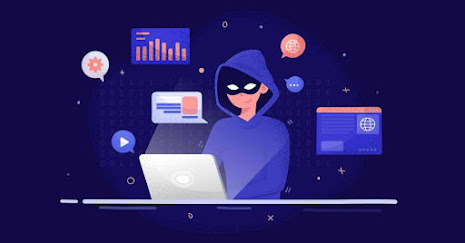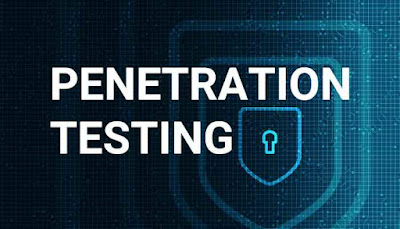Ethical Hacking: The Power of Responsible Cybersecurity
Hey there! In today's increasingly interconnected world, where technology reigns supreme, cybersecurity has become a paramount concern. Amidst the constant threat of cyber attacks, there emerges a group of individuals who possess a unique set of skills—a group known as ethical hackers. But what exactly is ethical hacking, and why is it so crucial?
Imagine a world where digital systems are fortified against malicious hackers, where vulnerabilities are discovered before they can be exploited for nefarious purposes. This is the realm of ethical hacking, a practice that aims to uncover weaknesses in computer systems, networks, and software through responsible and authorized means.
In this blog post, we'll delve into the world of ethical hacking, unraveling its mysteries and shedding light on its ethical considerations. We'll explore the core skills and knowledge required to be an ethical hacker, the powerful tools they employ, and the legal and ethical guidelines they must adhere to. We'll also take a look at real-world examples where ethical hacking has played a pivotal role in thwarting cyber threats and discuss the promising career opportunities it offers.
So, whether you're an aspiring ethical hacker, a cybersecurity enthusiast, or simply curious about this fascinating field, join us as we uncover the power of ethical hacking and its profound impact on safeguarding our digital world. Get ready to dive into the world of responsible cybersecurity and discover the heroes who defend us from the shadows—the ethical hackers.
I. Understanding Ethical Hacking
Alright, let's start by demystifying ethical hacking and getting a clear understanding of what it's all about.
A. Definition and Scope
So, what exactly is ethical hacking? Well, think of it as the good guys wearing black hats. Ethical hacking involves authorized individuals, known as ethical hackers, who simulate cyber attacks on computer systems, networks, and software to identify vulnerabilities. Their goal? To expose weaknesses before malicious hackers can exploit them.
It's important to note that ethical hacking is distinct from malicious hacking. While malicious hackers seek to cause harm, steal information, or disrupt systems, ethical hackers are driven by a noble purpose: to help organizations and individuals secure their digital assets and stay one step ahead of potential threats.
B. Key Skills and Knowledge
Being an ethical hacker isn't just about wearing a cool hat and typing away on a computer. It requires a specific skill set and a deep understanding of cybersecurity.
To be effective, ethical hackers need to be well-versed in areas like network protocols, programming languages, operating systems, and the latest hacking techniques. They need to have a keen eye for identifying vulnerabilities and the creativity to come up with innovative solutions to patch those weaknesses.
But here's the catch—cybersecurity is a fast-paced field, constantly evolving and adapting to new threats. So, ethical hackers must also possess an insatiable appetite for learning. They need to stay up-to-date with the latest trends, tools, and techniques to keep their hacking skills sharp and effective.
All in all, ethical hacking requires a unique combination of technical expertise, analytical thinking, and a deep commitment to ethical conduct.
So, now that we have a solid foundation of what ethical hacking is and what it takes to become an ethical hacker, let's dive deeper into the tools and techniques they employ in their quest to fortify our digital defenses.
II. The Ethical Hacker's Toolkit
Now that we have a grasp of the fundamentals, let's explore the exciting world of tools and techniques that ethical hackers use to carry out their important work.
A. Vulnerability Assessment
Picture this: you're a security guard responsible for protecting a building, but before you can do your job effectively, you need to identify the weak points in the structure. That's where vulnerability assessment comes into play for ethical hackers.
Vulnerability assessment involves using specialized tools to scan computer systems, networks, and applications for potential vulnerabilities. These tools help ethical hackers identify security loopholes, misconfigurations, and outdated software that could serve as entry points for unauthorized access.
By performing comprehensive vulnerability assessments, ethical hackers can provide valuable insights to organizations, empowering them to patch up vulnerabilities before they're exploited by cybercriminals.
B. Penetration Testing
Now that the vulnerabilities have been identified, it's time to take things a step further through penetration testing, often referred to as "pen testing" for short.
Penetration testing is like playing the role of the attacker with permission. Ethical hackers simulate real-world attacks to assess the security of a system or network. They attempt to exploit the identified vulnerabilities to gain unauthorized access, steal data, or compromise the system.
The objective of penetration testing is to determine the effectiveness of an organization's security measures and to uncover potential weak points that need attention. By proactively uncovering these vulnerabilities, ethical hackers help organizations strengthen their defenses, ensuring that they're better equipped to withstand actual attacks.
C. Social Engineering
Alright, here's where things get really intriguing—social engineering. No, we're not talking about engineering a social gathering (although that can be fun too!). Social engineering refers to the art of manipulating people to gain unauthorized access or divulge sensitive information.
Ethical hackers utilize social engineering techniques to test an organization's human vulnerabilities. They might use tactics like phishing emails, pretexting, or impersonation to deceive unsuspecting employees into revealing confidential data or granting unauthorized access.
It's worth noting that while social engineering can be an incredibly powerful tool for ethical hackers, it's crucial that it is used responsibly and ethically. After all, the goal is not to cause harm but to identify weaknesses in an organization's human factors and educate employees about the importance of being vigilant against such attacks.
So, with vulnerability assessment, penetration testing, and social engineering in their arsenal, ethical hackers are well-equipped to uncover vulnerabilities and help organizations build stronger, more secure systems.
Now that we've explored the toolkit of an ethical hacker, let's move on to the ethical considerations that govern their actions. It's important to understand the legal and ethical frameworks within which ethical hacking operates.
III. Ethical Considerations
Now that we've delved into the exciting world of ethical hacking and the tools they use, it's essential to address the ethical considerations that guide their actions. After all, with great power comes great responsibility!
A. Legal and Regulatory Framework
Ethical hacking operates within a legal and regulatory framework that varies across different jurisdictions. Laws and regulations determine the boundaries and permissible activities for ethical hackers. It's crucial for ethical hackers to familiarize themselves with these legal frameworks and ensure they operate within the confines of the law.
Obtaining proper authorization and consent is a cornerstone of ethical hacking. Ethical hackers must seek explicit permission from the system owners or organizations before conducting any security assessments. Unauthorized hacking attempts can lead to serious legal consequences, so it's vital to obtain proper authorization and stay within legal boundaries.
B. Code of Ethics
Ethical hackers adhere to a code of ethics that governs their professional conduct. These codes outline the principles and values that ethical hackers should uphold in their work. While specific codes may vary, they often emphasize integrity, confidentiality, and respect for privacy.
Confidentiality is of utmost importance in ethical hacking. Ethical hackers must treat any sensitive information they come across during their assessments with the utmost care. Maintaining the confidentiality of client data and respecting privacy rights is crucial to maintaining trust and professionalism.
Integrity is another essential principle. Ethical hackers should act honestly, avoiding any conflicts of interest that could compromise their objectivity. They should accurately report their findings and avoid manipulating or damaging systems beyond the scope of their assessments.
C. Responsible Disclosure
Responsible disclosure is a critical aspect of ethical hacking. When ethical hackers identify vulnerabilities, they have a responsibility to disclose these findings to the appropriate parties in a responsible manner. This involves notifying the system owners or software developers about the vulnerabilities discovered, providing them with sufficient details to reproduce and address the issues.
By practicing responsible disclosure, ethical hackers help ensure that vulnerabilities are patched promptly, minimizing the risk of exploitation by malicious actors. Responsible disclosure fosters collaboration between ethical hackers and organizations, creating a safer digital environment for everyone.
Furthermore, ethical hackers should refrain from publicly disclosing vulnerabilities without proper authorization. Prematurely disclosing vulnerabilities can leave systems exposed and increase the risk of attacks before mitigation measures can be implemented.
By adhering to the legal and ethical frameworks, ethical hackers demonstrate their commitment to responsible and accountable practices, making a positive impact in the realm of cybersecurity.
Now that we've explored the ethical considerations in ethical hacking, let's move on to the practical application of ethical hacking and its real-world impact. We'll dive into captivating examples and discuss the exciting career opportunities in this ever-growing field.
IV. Ethical Hacking in Practice
Alright, it's time to see ethical hacking in action and explore its practical applications. From real-world examples to promising career opportunities, this section will give you a deeper understanding of the tangible impact ethical hacking can have.
A. Real-World Examples
Ethical hacking has played a pivotal role in preventing cyber attacks and securing digital systems. There have been numerous cases where ethical hackers have been instrumental in uncovering vulnerabilities and helping organizations fortify their defenses.
For instance, ethical hackers have discovered critical security flaws in popular software applications, allowing developers to release patches before any widespread exploitation could occur. They have exposed vulnerabilities in network infrastructures, helping companies identify weak points and implement stronger security measures.
In some instances, ethical hackers have even assisted government agencies in identifying and mitigating potential threats to national security. Their efforts have undoubtedly made a significant difference in safeguarding critical infrastructures and protecting sensitive information.
B. Ethical Hacking as a Career
As an ethical hacker, you have the opportunity to work with cutting-edge technologies, constantly challenge yourself, and make a tangible impact in the fight against cybercrime. You can join cybersecurity firms, work as an independent consultant, or even be part of internal security teams within organizations.
To embark on a career in ethical hacking, there are several paths you can take. Acquiring relevant certifications, such as Certified Ethical Hacker (CEH) or Offensive Security Certified Professional (OSCP), can provide a solid foundation and enhance your credibility in the field. Additionally, continuous learning and staying updated with the latest hacking techniques and cybersecurity trends are essential to stay at the forefront of the industry.
It's worth mentioning that ethical hacking is not just about technical skills. Effective communication, problem-solving abilities, and an ethical mindset are equally crucial in this field. Ethical hackers often work closely with other cybersecurity professionals, collaborating to identify and address vulnerabilities effectively.
C. Collaboration with Security Teams
Ethical hackers are not lone warriors fighting in isolation. They often collaborate closely with security teams within organizations. These teams work hand in hand to build robust security measures and respond promptly to emerging threats.
Ethical hackers provide valuable insights, identifying vulnerabilities that might have otherwise gone unnoticed. Their findings help security teams prioritize their efforts, allocate resources effectively, and implement targeted security measures.
This collaboration between ethical hackers and security teams creates a symbiotic relationship, where the skills and expertise of ethical hackers complement the knowledge and experience of security professionals. Together, they form a formidable defense against cyber threats.
D. Bug Bounty Programs
Bug bounty programs have gained popularity in recent years, offering an additional avenue for ethical hackers to showcase their skills and contribute to the security of various organizations. These programs invite ethical hackers to discover and responsibly disclose vulnerabilities in exchange for monetary rewards.
Numerous tech giants and organizations, including Microsoft, Google, and Facebook, have embraced bug bounty programs. By incentivizing ethical hacking, these programs encourage hackers to actively participate in securing their systems. Bug bounty programs provide ethical hackers with a platform to demonstrate their expertise, earn recognition, and contribute to the overall security of the digital landscape.
Ethical hacking is not just an abstract concept—it's a tangible force driving the protection of digital systems. Through real-world examples and promising career opportunities, we've explored the practical applications and impact of ethical hacking. Now, let's wrap up by summarizing the key points and emphasizing the importance of embracing ethical hacking principles to create a safer digital world.
V. Emerging Trends and Future of Ethical Hacking
Now that we've covered the present landscape of ethical hacking, let's take a peek into the future and explore the emerging trends that will shape this dynamic field.
A. Internet of Things (IoT) Security
The rise of the Internet of Things (IoT) brings with it a multitude of new devices and interconnected systems. From smart homes to industrial control systems, IoT offers convenience and efficiency but also introduces unique security challenges.
Ethical hackers will play a crucial role in securing IoT devices and networks. With their expertise, they can identify vulnerabilities in IoT devices and help manufacturers implement robust security measures. Ethical hacking will continue to evolve to address the specific challenges of IoT, ensuring that these connected systems are resilient against cyber threats.
B. Artificial Intelligence and Machine Learning
Artificial intelligence (AI) and machine learning (ML) are revolutionizing various industries. However, they also pose new security risks and ethical dilemmas. As AI and ML become more prevalent, ethical hackers will need to adapt and develop specialized skills to address the unique vulnerabilities associated with these technologies.
Ethical hackers will play a vital role in ensuring the responsible use of AI and ML. They will focus on identifying potential biases, data privacy concerns, and vulnerabilities in AI systems. By staying ahead of the curve and continuously expanding their knowledge, ethical hackers can contribute to the development of secure and ethical AI and ML applications.
C. Evolving Cyber Threats
Cyber threats are constantly evolving, with attackers employing increasingly sophisticated techniques. Ethical hackers must stay vigilant and adapt to new attack vectors to effectively defend against emerging threats.
As the threat landscape expands, ethical hackers will need to delve deeper into areas such as cloud security, mobile device security, and blockchain technology. They will need to understand the intricacies of emerging technologies and the potential security implications they present. By doing so, ethical hackers can proactively identify and address vulnerabilities, helping organizations stay one step ahead of cyber-criminals.
D. Collaboration and Knowledge Sharing
In the future, collaboration and knowledge sharing will be more critical than ever for ethical hackers. Cyber threats are not limited to individual organizations—they affect the entire digital ecosystem. Ethical hackers will need to collaborate with industry peers, researchers, and organizations to share information, exchange insights, and collectively strengthen cybersecurity measures.
Communities and platforms dedicated to ethical hacking will continue to thrive, providing spaces for collaboration, learning, and innovation. By fostering a culture of collaboration, ethical hackers can combine their skills and expertise to tackle complex challenges and build a more resilient cybersecurity framework.
In my opinion, the future of ethical hacking holds exciting possibilities. As IoT, AI, and cyber threats continue to evolve, ethical hackers will be at the forefront, ensuring the security and integrity of our digital world. By embracing emerging trends, collaborating with peers, and staying dedicated to ethical principles, ethical hackers will play a vital role in safeguarding our interconnected future.
Final Thoughts
We've reached the end of our journey into the captivating world of ethical hacking. Throughout this blog post, we've explored the definition and scope of ethical hacking, dived into the tools and techniques used by ethical hackers, discussed the ethical considerations that guide their actions, and examined the practical applications and future trends of this field.
Ethical hacking is not just about hacking into systems—it's about safeguarding our digital world, protecting organizations and individuals from malicious attacks, and fortifying our defenses against evolving cyber threats. It requires a unique combination of technical expertise, analytical thinking, and a commitment to ethical conduct.
As technology advances and new challenges arise, ethical hackers will continue to play a vital role in ensuring the security of our interconnected systems. The emerging trends we discussed, such as IoT security, AI and ML vulnerabilities, and evolving cyber threats, will shape the future of ethical hacking. By staying proactive, continuously learning, collaborating, and embracing ethical principles, ethical hackers will help create a safer digital landscape for all.
Whether you're considering a career in ethical hacking, looking to enhance your cybersecurity knowledge, or simply intrigued by this fascinating field, remember that ethical hacking is a force for good. It's about using powerful skills and tools to protect, educate, and strengthen the digital ecosystem we rely on.
So, as we conclude this blog post, let's appreciate the ethical hackers who tirelessly work behind the scenes, utilizing their expertise to keep us safe. Let's also remember the importance of ethical conduct, responsible disclosure, and collaboration in our collective efforts to build a more secure and resilient digital future.
Thank you for joining us on this exploration of ethical hacking. Stay curious, stay informed, and together, let's embrace the power of ethical hacking to create a safer and more secure world.
THANK YOU FOR READING!!
FOLLOW FOR MORE AMAZING CONTENT
MUST READ
- THE MAGNIFICENT QUANTUM REVOLUTION
- MYSTERIES OF UNIVERSE AND COSMOLOGY
- UNLOCKING SECRETS OF DATA SCIENCE
- THE MAGIC OF DRONES AND THEIR POWER
- IS MATERIAL SCIENCE FUTURE OF TECHNOLOGY?
- CYBERSECURITY-KEY TO SAFEGUARD YOUR DATA
- REVEALING TRUTH BEHIND DEEP-FAKE
- TRANSFORMATION OF SATELLITES AND MISSILES
- A CLOSER LOOK TO GRAPHENE
- THE IMPACT OF SPACE TECHNOLOGY
- UNCOVERING MYSTERIES OF IoT
- EXPLORING DEPTHS OF AUGMENTED REALITY
- FUTURE OF ELECTRIC AUTOMOBILES
- WHAT IS QUANTUM COMPUTING?
- DISCOVERING WONDERS OF VIRTUAL REALITY
- AUTOMATION-THE ROBOTIC PROCESS
- THE INCREDIBLE CHOCOLATE HISTORY
- HOW SUGAR IMPACTS OUR HEALTH AND WELL-BEING?
- MOST AFFORDABLE AND CHEP SUPERCARS IN INDIA
- FACEBOOK LATEST STYLISH BIO IDEAS
- MUST WATCH NETFLIX MOVIES IN 2023
- BEST FREE ANDROID GAMES TO TRY FOR FUN





























